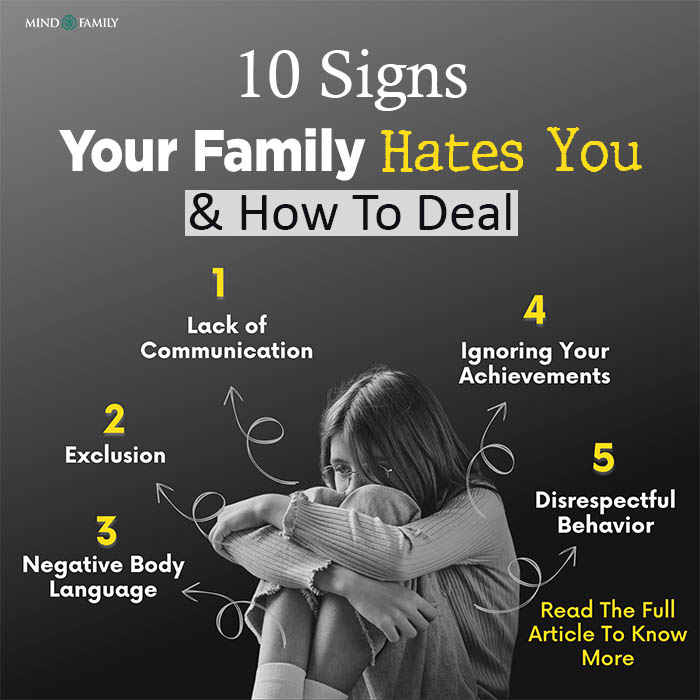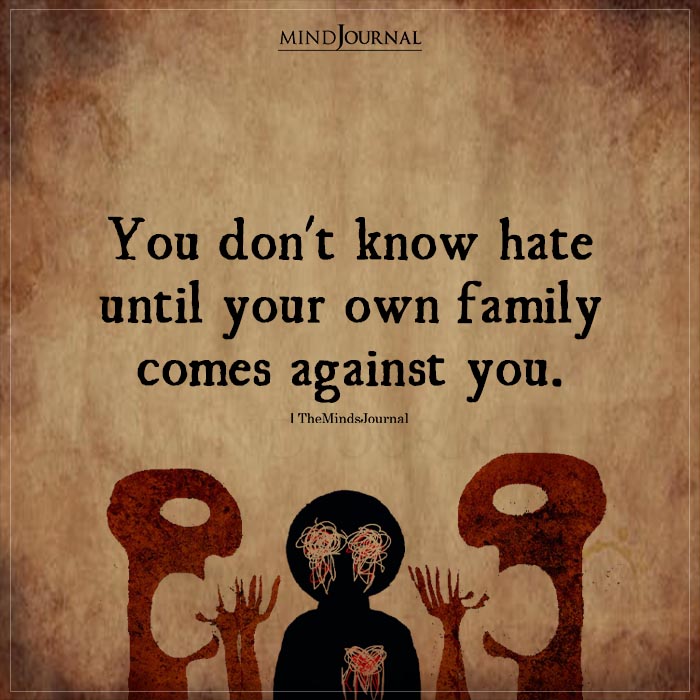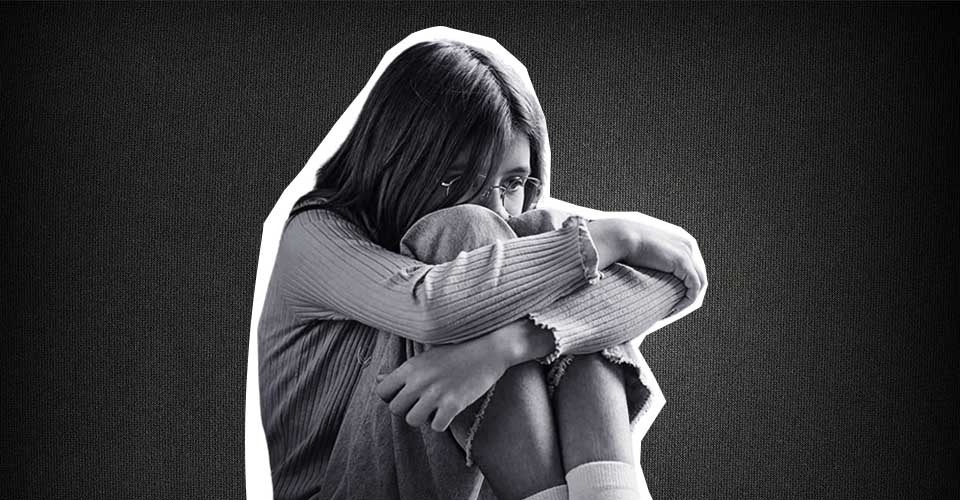When we talk about family, we usually think of love and support. But sometimes, things feel off, and it might seem like your family doesn’t care for you much. This can be a hard pill to swallow.
Especially when you are trying to recognize the signs your family hates you, can be a tough realization to confront. It’s a sensitive and complex issue, where what might be perceived as hate could sometimes be misunderstandings or normal family conflicts.
This guide aims to help you identify ten signs your family might not be as supportive as you’d hope and provide strategies on what to do when your family doesn’t care about you.
Understanding and dealing with family issues is hard but important. It’s about making things better for yourself and, maybe, improving your relationships with your family.
10 Subtle Signs Your Family Hates You

It’s important to approach such a sensitive topic with care and awareness. The idea that one’s family hates them can be distressing and may not always be accurate. However, sometimes there are strained relationships or dynamics within families that can cause individuals to feel unloved or unwanted.
Here are 10 subtle signs your family hates you:
1. Lack of Communication:
The lack of effective communication is one of the tell-tale signs your family hates you.
Your family members may consistently avoid engaging in meaningful conversations with you, preferring instead to stick to surface-level topics and small talk. This lack of communication can create a profound sense of isolation and disconnection.
It can leave you feeling unheard, misunderstood, and emotionally distant from those who are supposed to be your closest allies.
When attempts to initiate deeper discussions are met with resistance or indifference, it can reinforce the belief that your thoughts, feelings, and experiences are unimportant or unworthy of consideration within the family dynamic.
Read More: What Are Family Dynamics? Is Your Family Dynamics Uplifting or Weighing You Down?
2. Exclusion:
Whether intentional or unintentional, you might frequently find yourself excluded from family gatherings, events, or decision-making processes.
This pattern of exclusion can evoke feelings of rejection, loneliness, and invisibility, eroding your sense of belonging and connection to your family unit.
Even subtle cues such as not being invited to outings or being left out of group messages can amplify these feelings of isolation and alienation, fostering a deep-seated belief that you are somehow unwelcome or unwanted within your family circle.
3. Negative Body Language:
When your family makes the effort to not look you in the eye, cross their arms or even turn away when you’re around them, it’s a clear signal to let you know that they have some underlying issues with you.
These subtle signs can be so upsetting and make you feel like an intruder in your own home. It’s almost as if they’re trying to make sure your insecurity and feelings of inadequacy are heightened.
Imagine getting no verbal affirmation or positive reinforcement while also seeing these negative body languages everyday. This only increases the feeling of being rejected and having no worthiness in life. It’s only a matter of time until any hope you had is gone, leaving behind self-doubt and emotional distress.
Read More: The Impact of Social Media on Children: 5 Damaging Effects!
4. Ignoring Your Achievements:
Your family may regularly downplay or not acknowledge your successes, leaving you feeling unappreciated and unseen. If nobody recognizes your accomplishments, you might start to believe that what you do doesn’t matter or has no real value.
5. Disrespectful Behavior:
Experiencing disrespectful behavior from your family can seriously affect your emotional well-being and self-esteem. From interrupting you when you speak to dismissing your opinions or belittling you in front of others, it can feel like they don’t care about how their actions impact you.
6. Constant Criticism:
Instead of offering constructive feedback or encouragement, your family members might constantly criticize everything that you say or do. Over time, this can tear down your identity and make you feel like all efforts are futile and insignificant.
Be it your choices, appearance, or lifestyle, there always seems to be something that people want to critize. This constant scrutiny can undermine your self-confidence and self-esteem, fostering a persistent sense of inadequacy and unworthiness.
Internalizing these negative messages over time constantly shape your self-perception and behavior. It becomes a cycle of self-doubt and self-criticism that is extremely difficult to break free from.
7. Refusing affection:
Not giving affection to someone is one of the many subtle signs your family hates you.
People might refuse gestures of kindness like hugs, compliments, or words of encouragement. Not only does this leave you emotionally neglected but also starved for love and validation.
This emotional deprivation can go on to have consequences on ones mental and emotional well-being too. It contributes to feelings of insecurity and loneliness as well as emotional detachment from those who are supposed to care for you.
8. Comparisons with Siblings:
Being compared constantly with siblings or other family members can easily damage ones self-esteem and worth in themselves. Whether it’s meant directly or indirectly; the message is clear: “You’re just not as good.”
This feeling can breed resentment and insecurity within yourself which leads someone into an endless pursuit of validation from others. Over time the weight of these comparisons will chip away at your confidence until you feel perpetually inadequate..
Read More: 5 Effective Strategies for Resolving Sibling Conflict in Adulthood!
9. Haters Gonna Hate:
Your family might take subtle steps to destroy your chances of success or reaching your goals. They may say things that are passive-aggressive, discouraging, or even sabotage you directly.
Why would they want you to fail though? It’s unclear what their motivation is but the actions that they take can lead to a toxic environment that will be hard for you to grow personally and develop in.
It takes a lot of energy and motivation to constantly fight through these obstacles, so over time this could make it harder for you to believe in yourself and have the desire to succeed.
10. The Gaslighters:
Don’t forget the time when all you did was come in second place!
When you try to express how you feel or address something that is bothering you, your family members may dismiss what you’re saying all together. This could make it seem like they are telling you that what you’re feeling isn’t real and that can really mess with someone’s head.
This can leave someone feeling misunderstood and invalidated by the people who should understand them better than anyone else does. When gaslighting happens enough times it can start to eat away at somebody’s trust in themselves as well as others. In other words, it leaves people wondering if anything they think is real at all.
Unfortunately, overtime this type of manipulation and deception can damage someone deeply on a mental level which could lead them down a path where it becomes hard for them to trust anybody anymore
Read More: What Is A Toxic Family And Signs You Grew Up In A Toxic Family
5 Signs Your Family Doesn’t Care About You
Navigating complex family dynamics can be challenging, especially when it comes to feeling unloved or uncared for by those closest to you.
While the lines between love and care can sometimes be blurred, certain signs may indicate that your family doesn’t prioritize your well-being or emotional needs.

Here are five signs your family doesn’t care about you:
1. Emotional Neglect:
Emotional needs? What emotional needs? Your family consistently ignores or dismisses them, never giving you any of the validation, empathy and support that you need.
It could be anything from a lack of comforting words during times of distress to the general indifference they show towards your feelings. Whatever it is, emotional neglect can make you feel like an outcast in a family that seems to think “emotions” are just some bizarre concept.
2. Conditional Love:
You’ve probably noticed that your family gives affection only when they want something or only when certain conditions have been met and roles have been fulfilled. It’s not normal!
They might love you if you manage to get good grades, have a successful career, or fit into society’s narrow definition of “normal.” But feeling like you constantly have to prove yourself in order for your family to care about you takes an incredibly heavy toll on a person emotionally.
3. Lack of Involvement:
Honestly, does anyone in your family even care about what goes on in your life? Interests? Accomplishments?
They all seem so disinterested and uninvested in everything that makes you who you are as a person… Is it too much to ask for just one person to remember important milestones or attend significant events? Because honestly their complete lack of involvement makes it seem like they don’t really give two shits about anything that happens with you.
4. Constant Criticism:
Do these people ever shut up?! Their mouths seem permanently attached to their vocal cords at this point…Really!
Instead of offering support and encouragement they constantly criticize every little thing about you; focusing on flaws and shortcomings instead of strengths and achievements. Their relentless negativity must eat away at any shred confidence left inside of you until there’s nothing but emptiness.. which isn’t fair!
5. Inability to Communicate:
Communication is key in any relationship! But for some reason your family is just pathetically bad at it with you.
It’s like they’re children plugging their ears and screaming “la la la” whenever you try to say something, never wanting to listen or speak about anything that really matters. Their inability to communicate properly only pushes you further away from them, leaving you feeling more and more lonely as time goes on.
If you recognize these signs and think your family truly does hate you then the only thing left for you to do is prioritize yourself above all else. Seek out help from friends, counselors, or therapists who can assist you in navigating such a complex situation…because nobody should have to feel so alone in a place that should be filled with love.
Read More: 10 Subtle Signs You Might Be the Family Scapegoat and How to Cope!
What To Do When Your Family Doesn’t Care About You
Dealing with a situation where you feel your family doesn’t care about you can be incredibly challenging and emotionally distressing.
Here are some steps you can take for what to do when your family doesn’t care about you:
1. Acknowledge Your Feelings:
It’s important to recognize and validate your feelings of hurt, disappointment, and sadness. Allow yourself to feel your emotions without judgment and understand that it’s normal to experience a range of feelings in this situation.
2. Seek Support:
Reach out to trusted friends, relatives, or a therapist who can provide you with emotional support and guidance. Talking to someone who understands and validates your experiences can help you feel less alone and offer valuable perspective and coping strategies.
3. Set Boundaries:
Establishing clear boundaries with your family members can help protect your emotional well-being. This might involve limiting contact with toxic individuals, setting boundaries around certain topics of conversation, or creating distance to prioritize your own needs.
4. Focus on Self-Care:
Invest time and energy in activities that nourish your mind, body, and soul. Engage in hobbies you enjoy, practice self-compassion, prioritize relaxation, and take care of your physical and emotional health.
5. Explore External Support Networks:
Build connections with supportive communities, such as support groups, online forums, or social organizations. Surrounding yourself with people who affirm and uplift you can help counteract the negative effects of familial neglect.
A mental health professional can provide you with the support, guidance, and resources you need to navigate this difficult situation and move forward with resilience and strength.
A Word From Mind Family
As members of the Mind Family, we understand the profound impact that familial relationships can have on one’s mental and emotional well-being. We recognize the complexities and challenges inherent in navigating family dynamics, especially when feelings of neglect or indifference arise.
Remember that you deserve to feel loved, valued, and cared for, regardless of your family’s actions or attitudes. Your feelings are valid, and it’s okay to prioritize your own needs and set boundaries to protect your mental and emotional health.
You are worthy of love, acceptance, and happiness, and we are here to support you every step of the way.
Frequently Asked Questions (FAQs)
1. What are the subtle signs your family hates you?
Subtle signs of family hatred include lack of communication, exclusion from events, negative body language, ignoring achievements, disrespectful behavior, constant criticism, withholding affection, comparisons with siblings, sabotaging goals, and gaslighting or invalidating feelings.
2. What are the signs your family doesn’t care about you?
Signs your family doesn’t care about you include emotional neglect, conditional love, lack of involvement, constant criticism, and inability to communicate effectively.
3. What to do when your family doesn’t care about you?
Learning what to do when your family doesn’t care about you is about acknowledging your feelings, seeking support from friends or professionals, setting boundaries, prioritizing self-care, exploring external support networks, and considering therapy for guidance and healing.

















Leave a Reply